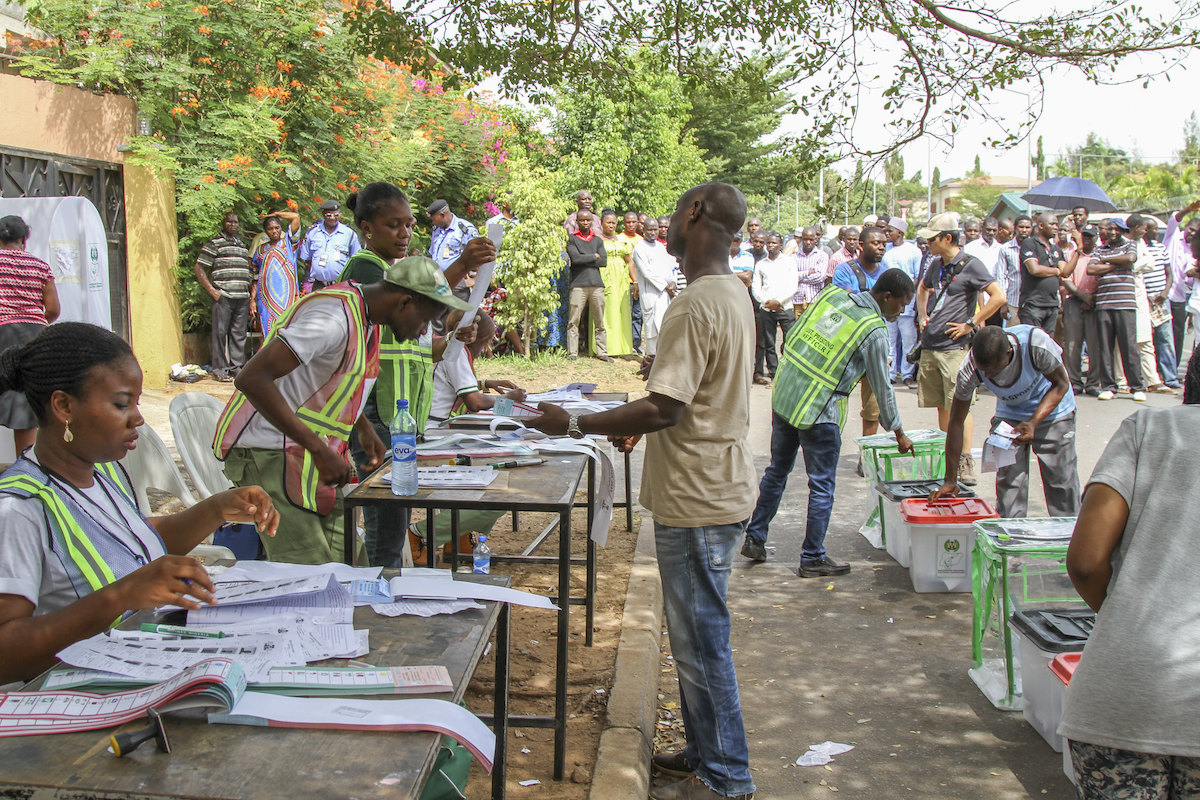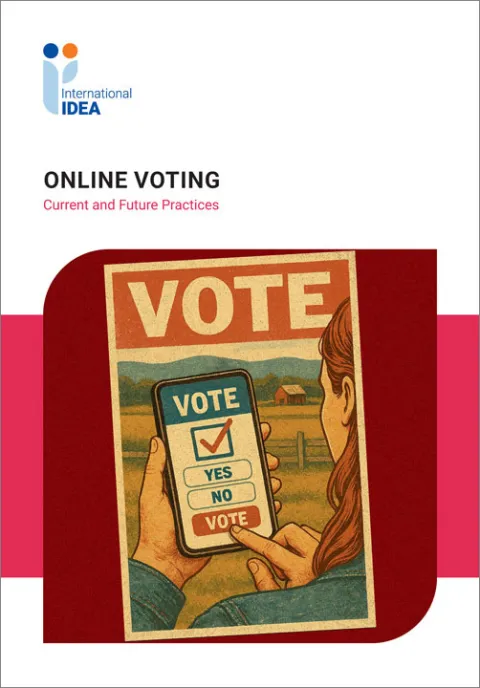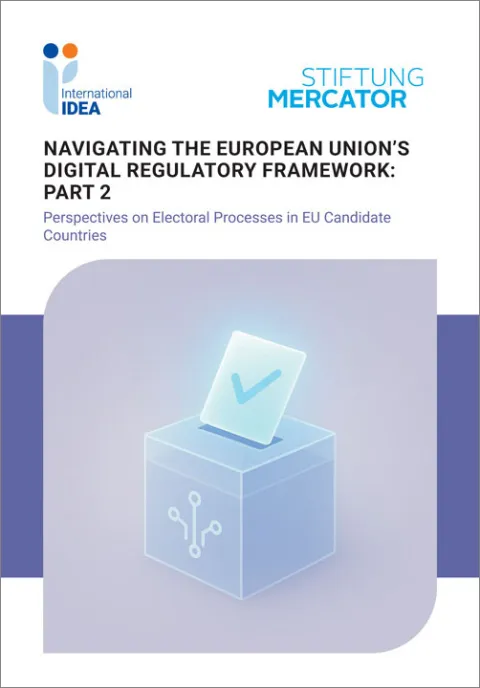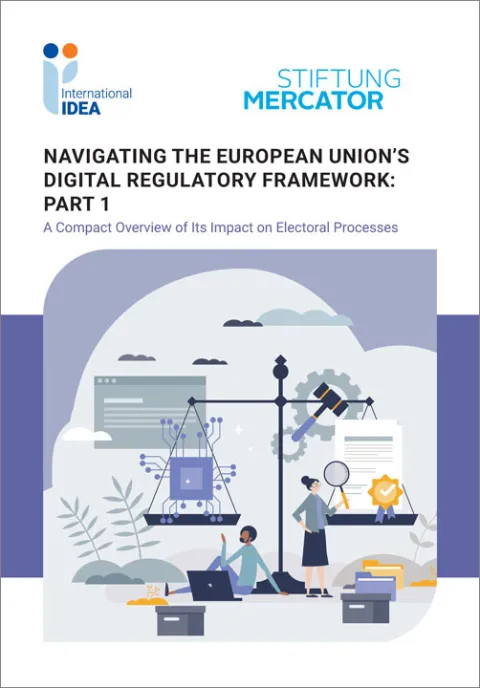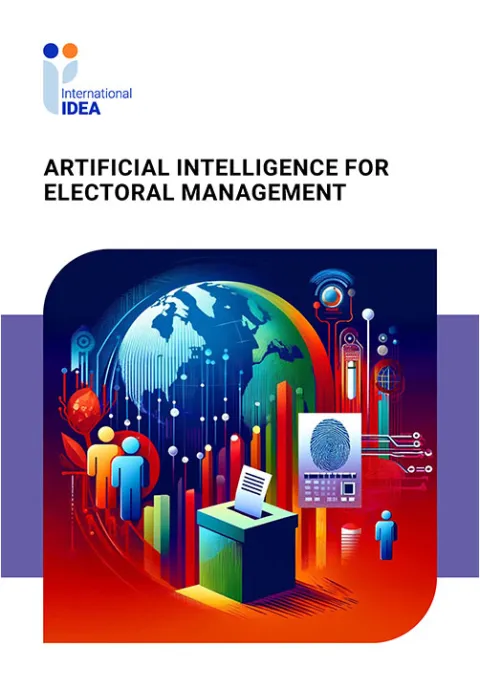The database was created by International IDEA using global survey of EMBs, by contracting regional/local consultants and also using in office research conducted by Institute researchers. The community is encouraged to use the database and help us to improve existing entries and keep the database up-to-date.
ICTs in Elections Database
Export dataSelect the criteria below to start your search
Want to compare multiple countries, regions or entities at the same time? Please use the advanced search tool.
Advanced searchAbout this database
One of the most compelling concerns that election practitioners face today is how to make use of the unique opportunities presented by the development of modern information and communication technologies (ICTs). ICTs can help to speed up and streamline several procedures in the electoral cycle, such as voter registration, casting ballots, processing of results and many other processes. However, technologies can also create complex challenges to election operations. When ICTs are correctly used, based on well-identified needs and the adoption of a proper implementation strategy, the outcome can be very beneficial.
Some countries use ICTs effectively to improve electoral processes, but others face problems. The most cited causes of failure in ICT use include unrealistic expectations of ICTs to meet demands, adoption of inappropriate technologies, and lack of qualified staff to work with ICTs.
In order to help election practitioners and stakeholders to better understand the use of ICTs in elections, International IDEA has conducted a global comparative study to learn how ICTs are being used in several stages of electoral process. The main purpose was to document the global patterns of usage of ICTs in elections, the problems and challenges countries are facing, and the types of technologies being used. The study led to the development of an online database, which presents the comparative data in an interactive way.
The database consists of five parts covering the use of ICTs in the following areas:
- Voter registration and identification
- E-voting
- Processing of results
- Use of open source technology in election administration
- Online data publication by electoral management bodies (EMBs)
Methodology
The initial data for the ICTs in Elections Database was gathered between 2014 and 2016. A specific survey questionnaire was distributed to national electoral management bodies (EMBs). When contact details of EMBs of some countries were not available or when EMBs did not respond to the survey questionnaire, in-house research was conducted by International IDEA’s officers in conjunction with regional/local consultants when needed to collect the necessary data.
Since the launch of the ICTs in Elections Database, the data is continuously updated following the changes in regulations of countries related to the use of ICTs in elections. While updating the data, particular attention is given to news reports posted in EMB websites, media articles, election observation mission reports, and other reputable sources covering on-going elections around the world. Thus, it is most likely that data for each country is updated closer to an electoral event. Since 2018, recording the new data in the database also preserves data from previous years. This makes it possible to gradually create time series dataset.
Researchers at International IDEA do their best to keep the database up-to-date. However, due to time and budgetary restraints we may not keep the track of all the changes happening across the globe. In addition, non-response from EMBs or lack of reference materials available online increases the chances of misinterpretation of practices used in some countries. Therefore, we invite researchers and practitioners working in the area of elections to contribute to the update of the ICTs in Elections Database. If they note that the database has missing data, or if they find data that is incorrect, missing sources or requires more explanation, they can use the online form in the “Submit feedback” section. We will review the submission as soon as possible and update the database if the data suggested is accurate.
Frequently asked questions
Related publications
Submit feedback
Submit questions or comments about the Data or Tool
How did you find out about this? What do you like about it? What did you expect but did not find in using the Data or Tool?
To see how we handle your personal data, please read our Privacy Policy.

